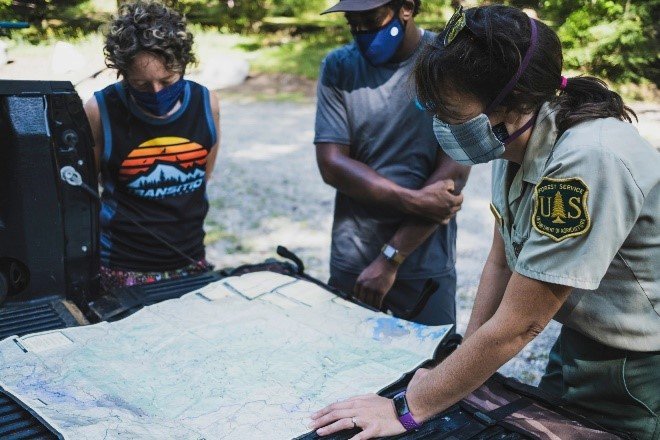As America’s interest in getting outdoors grows, so does the potential for impacts on natural resources. Too often, we tend to give our own recreational pursuits a pass and blame the impacts on someone else. In western North Carolina Kristian Jackson found mountain bikers working to protect their use by helping to protect fish.
“I like to say that trails solve problems,” says Lisa Jennings, recreation and trails program manager for the Grandfather District. Lisa spends much of her time collecting input from different user groups about problem trails in the area, to better inform how to rebuild them in a way that both solves environmental issues and provides a better experience for users like Shanna Powell and Trey Thomas.
Kristian Jackson, Patagonia
The steep, rugged terrain of North Carolina’s Pisgah National Forest attracts mountain bikers from all over the United States. But the area also receives over 70 inches of rain annually – a recipe for washed out trails and silted-in creeks and rivers.
“The dirt’s long gone, brother,” observes J.E.B. Hall, a local mountain biker, kayaker and fishing guide. “Every rainstorm puts more of this trail into the creek. Sediment fills in the gaps between rocks, killing off the critters that scoot around underwater and warming up the stream.” This in turn threatens native brook trout.
With many of the Pisgah’s trails eroding and increasingly posing threats to the forest’s watersheds, and faced with the closure of one such trail, a group of mountain bikers, anglers and land managers embarked on an effort to heal a river by building a better trail—and sparked a series of large-scale projects that could transform the area’s trails and help restore entire watersheds in the process.
Their answer was the Mortimer Trails Project, a bold, collaborative effort between the USFS and Alliance to improve water quality by improving user experiences—or, more simply, to make better rivers by making better trails.

